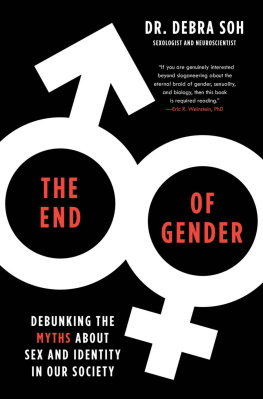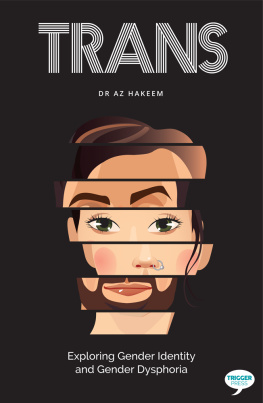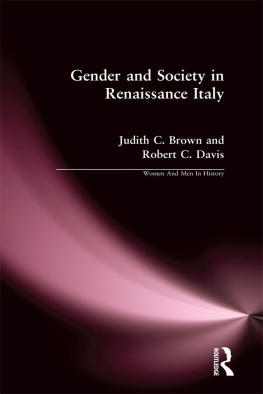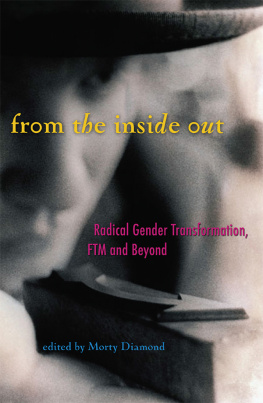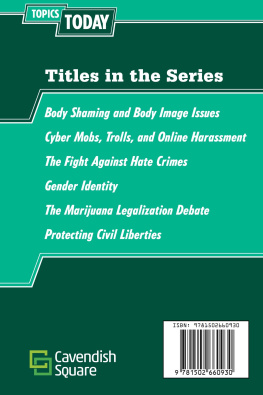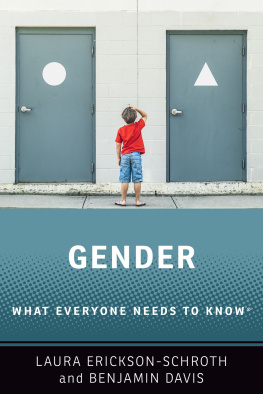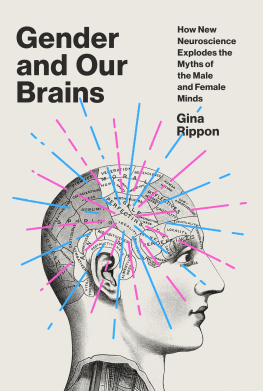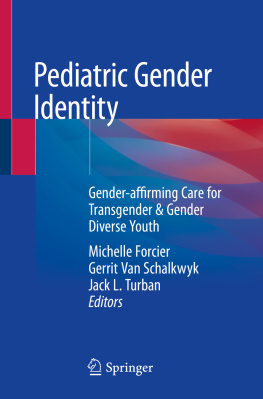
Thank you for downloading this Simon & Schuster ebook. Get a FREE ebook when you join our mailing list. Plus, get updates on new releases, deals, recommended reads, and more from Simon & Schuster. Click below to sign up and see terms and conditions. CLICK HERE TO SIGN UP Already a subscriber? Provide your email again so we can register this ebook and send you more of what you like to read. You will continue to receive exclusive offers in your inbox.
For everyone who blocked me on Twitter
INTRODUCTION
THE BATTLE AGAINST BIOLOGY
H ello!
Are you afraid someone saw you pick up this book? You shouldnt be.
Everything in here is backed by science and facts. None of this should be controversial. And yet it is.
On some level, you already know this. There is a price for telling the truth about gender, especially in todays day and age. Ive paid it; maybe you have, too. Or maybe you are in the early stages of contemplating doing the same. Once youve opened your mouth and the words have come out, you can never go back. But you wont want to.
At first, I didnt think it was going to be this bad. I was so sure the current political climate, including the accompanying science denial, policy changes, mob mentality, shaming, and allegations of hate speech, would only be a temporary thing. The pendulum could only swing so far in one direction for so long. Certainly it would be swinging back.
And so, I waited. Im still waiting. Instead, this false and unscientific way of thinking continues to spread beyond the silo of academia and education, permeating the mainstream press, medicine, scientific organizations, entertainment, social media, law, and tech. There are no signs of turning back. Its not a question of whether you will encounter this ideology in your life, but to what extent and how willing you are to recognize that its happening.
Before I dive into the nitty-gritty details about the science of gender and how it applies to our lives in the context of so many issues today, Ill tell you about the thought process that led me here, from my time as an academic sex researcher to the moment I began putting these words on a page.
Few people will tell you that doing a PhD is a good idea, especially if they have one themselves. Graduate school consists of countless long nights and weekends spent working, goalposts constantly shifting, and endless bureaucracy, only to contend with an unpredictable job market upon graduating. Most graduates who leave the academy will get a job in industry, one that is relevant to their specialization. Few will start over in a completely unrelated field, like journalism, as I did.
My eventual decision to abandon the ivory tower was the result of the political climate shifting in ways I could have never predicted. In an ideal world, scientists wouldnt have to worry about the political implications of their work. Sex research is controversial by nature, and sex researchers are used to contending with interference coming from both sides of the political aisle. But while there is much backlash whenever the political right tries to meddle with sex science, and science more broadly, when the political left starts suppressing science, most people look the other way.
Its important to note the difference between sex research and sexologymy former fieldand other academic disciplines, like gender or womens studies, because they are not the same. Sex research refers to scientific disciplines that use quantitative (numbers-based) methods, including statistics, to understand human sexuality and gender. Related disciplines include biology, psychology, neuroscience, and medicine.
When done properly, sex research is rigorous, because science is designed to eliminate bias and confounding variables, so that you know that what you found is legit. Gender studies tends to use qualitative methods, like interviews and autoethnographies (which are like diary entries). It is not a scientific discipline. Although there are definitely gender scholars who are careful and rigorous with their work, many others are not fans of the scientific method.
This battle between scientific and antiscientific enterprises plays out in meaningful ways, as well see. And as left-leaning science denial continues to gain a greater foothold in the academy, research challenging progressive narratives has become increasingly precarious territory. It isnt as though scientists are intentionally publishing controversial research findings with the desire to upset and offend people. But the fear of potentially discovering something that hasnt been given the progressive stamp of approval has certainly become a larger factor influencing the types of questions a researcher chooses to pursue or avoid. Contrary to what you might expect, most sexologists (including me) who oppose these winds of political change are liberals.
Dont get me wrongI loved my research and sexology had become my intellectual home. At the time, I was using brain-imaging techniques, including functional magnetic resonance imaging (or fMRI), to better understand paraphilias, sexual orientation, and hypersexuality in men. As someone who is surprisingly old-fashioned and vanilla (that is, nonkinky) in my personal life, one of my biggest aims as a sex researcher was to combat sexual stigma and shame.
The laboratory I worked in was the only one in the world doing this kind of research and I felt like I had won the lottery. But things had changed so much during my time in graduate school that I found myself at an impasse. I decided to leave behind my dreams of one day starting my own research lab to instead set my sights on an entirely new career as a journalist so that I could be free to speak my mind.
Transgender Children
In my decision to leave academia, writing an op-ed became the catalyst. I had noticed a trend in mainstream news stories that left me feeling unsettled because they were extremely one-sided. An endless stream of pieces presented glowing stories about children as young as age three transitioningchanging their haircut, taking on a new name, and championing the use of medical interventions to halt some physical changes and facilitate others.
From as young an age as their parents could recall, something was different about these kids. They would say things that would make any parents heart wrench, like they were born in the wrong body, that God made a mistake, and that they wanted to die and be brought back to life as the opposite sex. These children would be suffering immensely until they were allowed a gender transition.
Not only that, but when I scrolled down below these articles, I would see parents posting in the comments section. Many would say that they, too, had a child who felt they were born in the wrong body, but the parents were unsure as to whether this direction was right for them. They were uncomfortable with the idea of allowing a child to essentially be a guinea pig, undergoing such a new and experimental approach. These parents would clearly state that they were in support of the transgender community, but were torn as to what to do.
In response, other commenters would attack the parent, calling them transphobic and bigoted, saying that their child would kill themselves and they would be the one to blame. I could only imagine how a parent would feel, voicing genuine concern for their childs well-being and in turn being harassed and dehumanized for merely asking a question. I could also see how this intimidation could lead to more parents allowing their children to transition.
After seeing this happen again and again, one story after another, I felt I had to speak up, for the sake of these parents and their children, because so few of my colleagues were willing to say anything.
Next page
